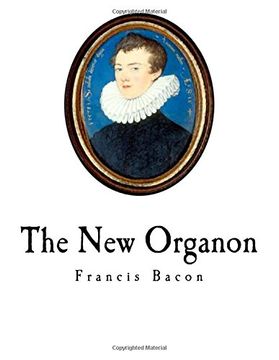Share
The New Organon: Novum Organum
Robert Leslie Ellis
(Translated by)
·
James Spedding
(Translated by)
·
Douglas Denon Heath
(Translated by)
·
Createspace Independent Publishing Platform
· Paperback
The New Organon: Novum Organum - Spedding, James ; Ellis, Robert Leslie ; Heath, Douglas Denon
Choose the list to add your product or create one New List
✓ Product added successfully to the Wishlist.
Go to My Wishlists
Origin: U.S.A.
(Import costs included in the price)
It will be shipped from our warehouse between
Wednesday, July 17 and
Friday, August 02.
You will receive it anywhere in United Kingdom between 1 and 3 business days after shipment.
Synopsis "The New Organon: Novum Organum"
The New Organon: Novum Organum or True Directions Concerning the Interpretation of Nature by Francis Bacon. First published in 1620. Text based on the standard translation of James Spedding, Robert Leslie Ellis, and Douglas Denon Heath in The Works (Vol. VIII), published in Boston by Taggard and Thompson in 1863. The Novum Organum, fully Novum Organum Scientiarum ('new instrument of science'), is a philosophical work by Francis Bacon, written in Latin and published in 1620. The title is a reference to Aristotle's work Organon, which was his treatise on logic and syllogism. In Novum Organum, Bacon details a new system of logic he believes to be superior to the old ways of syllogism. This is now known as the Baconian method. For Bacon, finding the essence of a thing was a simple process of reduction, and the use of inductive reasoning. In finding the cause of a 'phenomenal nature' such as heat, one must list all of the situations where heat is found. Then another list should be drawn up, listing situations that are similar to those of the first list except for the lack of heat. A third table lists situations where heat can vary. The 'form nature', or cause, of heat must be that which is common to all instances in the first table, is lacking from all instances of the second table and varies by degree in instances of the third table.

